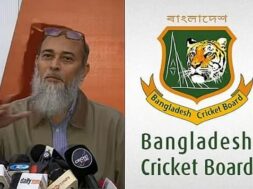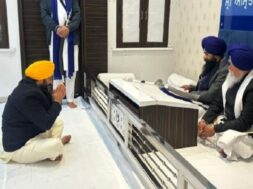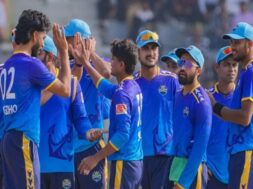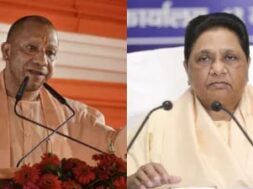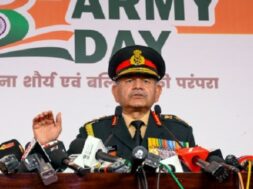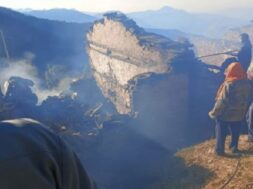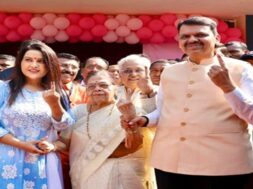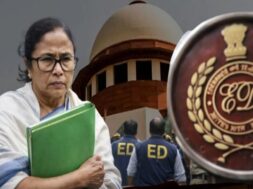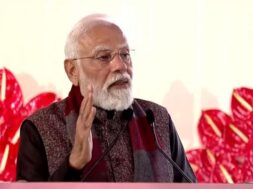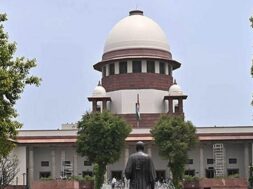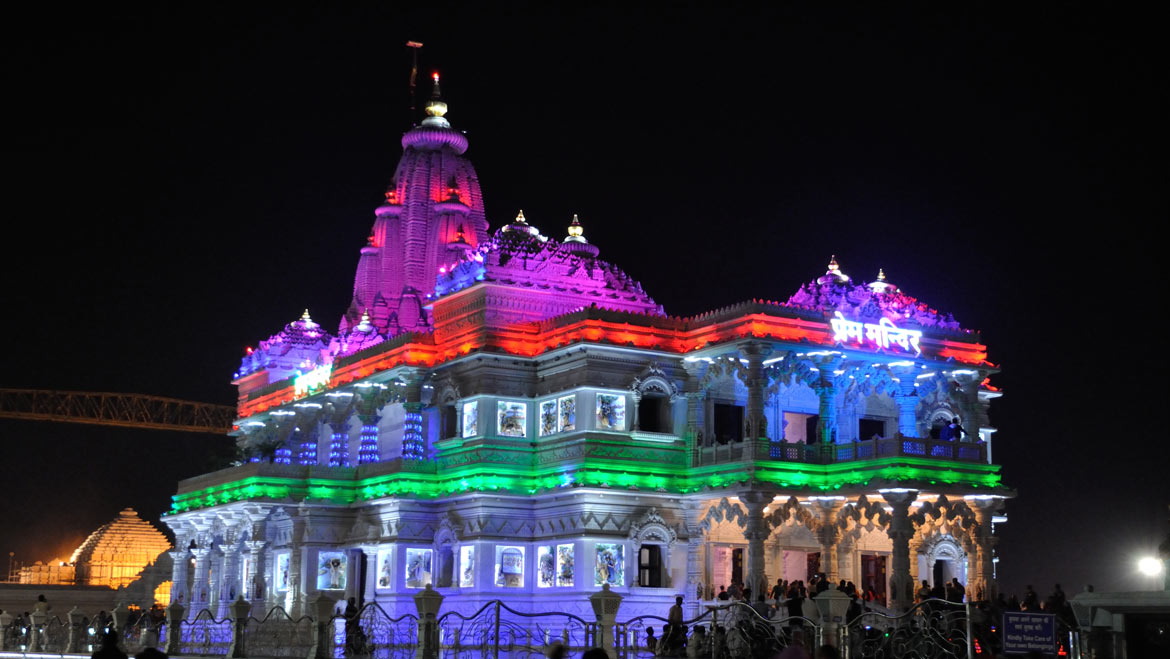
Manas Dasgupta
NEW DELHI, Sep 26: Another long-drawn legal battle on the lines of the Ram Janmabhoomi temple in Ayodhya seems to be in the making, this time in Mathura. Almost on the dotted line of the Ram Janmabhoomi and almost a year after the Supreme Court judgement on the Ram temple, a suit was filed in a Mathura court on Saturday for the “liberation” of the Krishna Janmabhoomi temple which the petitioners claimed was the “birthplace” of Lord Krishna.
The suit was filed in the Mathura civil judge court, senior division, on behalf of Hindu deity Lord Shrikrishna Virajman, like the Ram Lalla Virajman in the Ayodhya temple suit, seeking ownership over the entire 13.37 acres of Krishna Janmabhoomi land and removal of Shahi Idgah Masjid, which is situated adjacent to the Krishna temple complex in the city in Uttar Pradesh.
Some of the saints connected with the suit dropped enough hints that the next in their target was the Kashi-Vishwanath temple in Varanasi where too a mosque existed adjacent temple which like the Mathura temple too was believed to had been constructed partly demolishing the Lord Shiva temple during the tenure of the Mughal emperor Aurangzeb in 17th century.
The civil suit filed by Ram Lalla Virajman in 1989 led to the ownership of the disputed Ayodhya land in 2019.
The plaintiff, described as Bhagwan SriKrishna Virjman at Katra Keshav Dev Khewat, Mauja Mathura Bazaar City, has moved the civil suit through one Ranjana Agnihotri, a resident of Lucknow, and six other devotees of Lord Shri Krishna through the lawyers Hari Shankar Jain and Vishnu Jain. The respondents of the suit are UP Sunni Central Waqf Board and Committee of Management Trust of Shahi Masjid Idgah.
The suit seeks recovery of 13.37 acres of land situated within the area of the temple. The suit claims that the trust, with the help of some Muslims, encroached upon the land belonging to Shri Krishna Janamasthan Trust and the deity, and erected a structure. The birthplace of Lord Krishna lies beneath the structure raised by the trust, the suit said.
The suit reads: “He is minor. He is a juristic person. He can sue and be sued through shebait and in his absence through next friend. It can own, acquire and possess the property. It has every right to protect its property and to recover its lost property through shebait and in absence of shebait through next friend by availing an appropriate remedy in Court of law.”
Alleging that the Masjid Trust Idgah, with the help of some Muslims, put super structure and encroached upon the land of Katra Keshav Dev belonging to Shree Krishna Janmasthan Trust and the deity and added that “it is there without any authority.”
“The committee of Management of Trust Masjid Idgah entered into an illegal compromise on October 12, 1968, with the Society Shree Krishna Janamasthan Seva Sangh and both have played fraud upon the court, the plaintiff Deities and devotees with a view to capture and grab the property in question,” reads the suit.
“Hindu Law prevalent in India from thousands of years, it is well recognized that the property once vested in the deity shall continue to be the deities property and property vested in the deity is never destroyed or lost and it can be regained and re-established whenever it is freed, found or recovered from the clutches of invaders, ultras or hoodlums,” it further states.
According to the petition, Mughal Emperor Aurangzeb, who ruled over India from July 31, 1658, to March 3, 1707 AD, “had issued orders for the demolition of a large number of Hindu religious places and temples. This included the temple standing at the birthplace of Lord Shree Krishna at Katra Keshav Dev, Mathura, in the year 1669-70 (Sixteen Sixty Nine- Seventy) AD. The army of Aurangzeb partly succeeded to demolish Keshav Dev Temple and construction was forcibly raised showing the might of power and said construction was named as Idgah Mosque,” the petition reads.
It was also claimed that Shri Krishna Janamsthan Seva Sansthan, which is the governing body of the temple complex, entered into an illegal compromise with the Shahi Idgah trust with a view to grab the property in question.
“The Shree Krishna Janmasthan Seva Sansthan is working against the interest of the deity and devotees and fraudulently entered into a compromise with the Committee of Management of Trust Masjid Idgah (Trust) in 1968 conceding a considerable portion of property belonging to the deity and the trust,” the suit said. The civil judge, Mathura, passed a judgement on the suit regarding the alleged “compromise between the Krishna Janmasthan Seva Sansthan and the Trust” on July 20, 1973.
The present suit has now prayed for “cancelling this judgement”.
The Mathura civil suit seemed to be an attempt to give expression to the growing demand among the Hindus to reclaim Mathura and Kashi temple following the favourable judgement of the Supreme Court on the Ayodhya temple. Reclaiming the sites of Kashi Vishwanath temple and Krishna Janmabhoomi temple at Mathura has now become a priority for various Hindu groups in the country.
Like the Shahi Idgah Mosque at the Krishna Janmabhoomi temple in Mathura, the Gyanvapi Mosque was also believed to had been built by Aurangzeb after destroying the Kashi Vishwanath temple. The remnants of the ancient Hindu temple can still be seen on the walls of the Gyanvapi Mosque.
Earlier in August, in an effort to liberate Mathura, Hindu sadhus had formed the ‘Shri Krishna Janmabhoomi Nirman Nyas’ on the lines of Ram Mandir trust. Nearly 80 saints from 14 states had come together to set up the new trust, which also included 11 saints from Vrundavan.
The Hindu Sadhus had said a signature campaign would soon be launched to connect other saints and seers for the ‘liberation’ of the Krishna Janmabhoomi.
However, the major roadblock for the Hindus to reclaim its spiritual and cultural sites that have been lost due to Islamic conquest in the past comes in the form of Places of Worship (Special Provisions) Act, 1991, which was passed by the then PV Narasimha Rao government at the height of the Ram Janmabhoomi agitation. The law prohibits conversion of places of worship – like churches, mosques and temples – into places of worship of a different religion and seeks to protect all religious structures as they existed at the time of Independence with the exception of the disputed site at Ayodhya.
Thus, conversion of mosques into temples or vice versa is barred as per the Act. Since the Ayodhya land was exempted, the Supreme Court had invoked this law while awarding the disputed site at Ayodhya to child deity Ram Lalla while reaffirming that similar cases cannot be entertained with respect to other sites.
